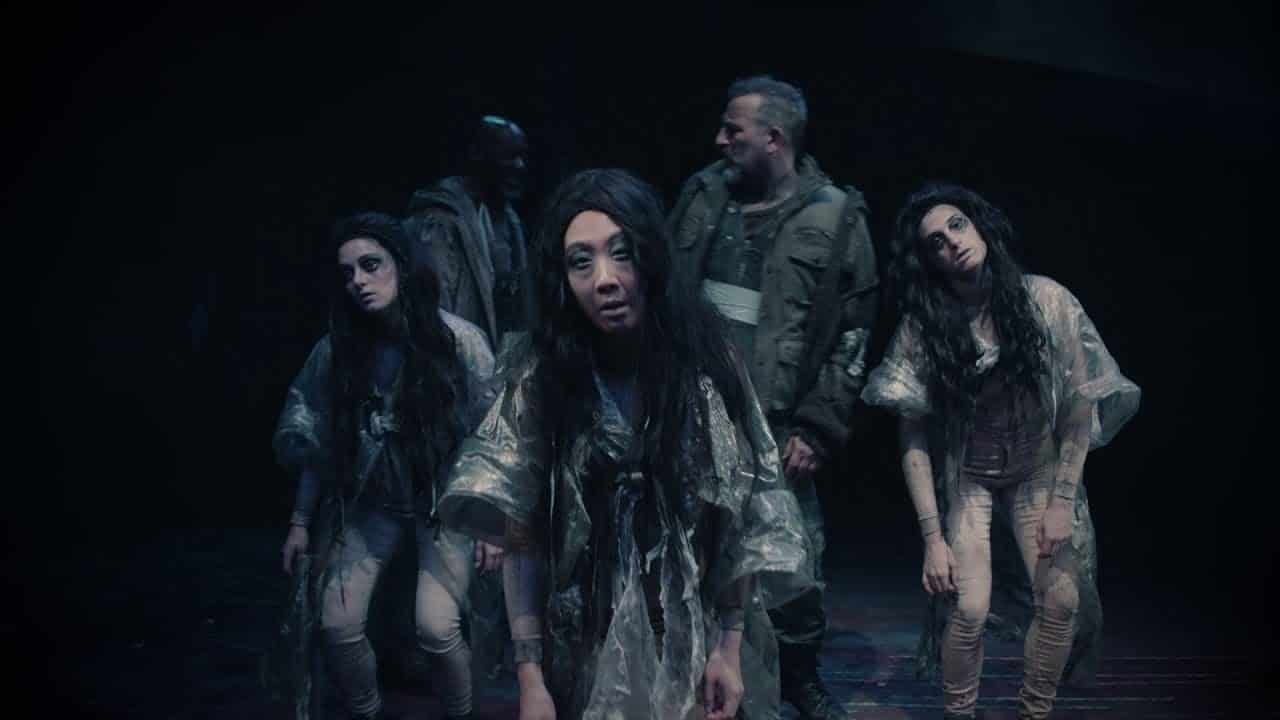‘Fair is foul and foul is fair’ is a particularly well known Shakespeare quote, said by the three witches in the opening scene of Macbeth… and what a wonderful opening Macbeth has! Darkness, thunder and lightning, a desert place and three witches, who, in a few short lines, chanting in a weird, unworldly rhythm, tell us what to expect from this play – the inversion of values, good becoming evil and evil becoming good (fair is foul and foul is fair); a hero who is to have a momentous meeting with the witches who have appeared specially for that; the obscuring of vision in the fog they create, and their filthy air that replaces the freshness and lightness of Scottish air.
As the opening scene ends we see the confession of the witches’ creed: “fair is foul and foul is fair.” Its application applies to both the physical and the moral worlds. They subvert everything and indulge in every kind of mischief, from killing swine to trapping and corrupting human souls. Macbeth is a victim of that mischief as ultimately his soul is trapped and destroyed.
When Duncan arrives at Glamys Castle to stay the night with Macbeth he is entering a place made to resemble hell with Lady Macbeth’s invocation of evil: “…Come thick night;/ And pall thee in the dunnest smoke of hell,/That my keen knife see not the wound it makes,/Nor heaven peep through the blanket of the dark …” As Duncan arrives at the castle gates he says: “This castle hath a pleasant seat; the air/Nibly and sweetly recommends itself/Unto our gentle senses.” A member of his party says: “… heaven’s breath smells wooingly here.”
They are entering the gates of Hell, though, and that pleasant air is about to change to fog and filthy air. Murder awaits Duncan as Macbeth and Lady Macbeth plan their regicide. Later, after the murder, when Macduff comes to take Duncan hunting, the porter at the gate has a small comic scene in which he pretends to be the keeper of the gates of Hell before opening them to Macduff, who discovers a scene of evil and confusion.
A study of the main character in the play reveals him to be one of the most interesting and remarkably drawn of all Shakespeare’s characters. Macbeth is slowly transformed from a thoroughly good man into pure evil, described by Macduff as a hell kite, and referred to as “bloody,” “butcher,” “tyrant,” etc. When we first see him he is a major celebrity, well-loved throughout the land and trusted by the king, who showers honours on him after he has shown his loyalty by putting down a rebellion and killing the rebels. Tempted by the witches, he gets the idea that he can be king, but Lady Macbeth assures him that it can’t happen unless they kill the king, which they do. From that moment on we see a decline into pure evil, as he presides over a reign of terror, and we see one of his murderers actually brutally killing a child onstage. He just keeps going down until he is defeated by forces whose imagery in the play is associated with angels, heaven and light, as opposed to the darkness, filthy air and fog imagery surrounding the now-evil Macbeth. The fair has become foul and what is foul was once fair. After Macbeth’s defeat at the hands of Macduff, who cuts his head off, order is restored and the witches’ influence over the land evaporates. Foul has become fair.
Throughout the play, there are a number of quotes where good an evil are contrasted, tying in with the motif of fair is foul and foul is fair. These include:
When the battle’s lost and won. (act 1, scene 1)
Let not light see my black and deep desires. (act 1, scene 4)
Look like the innocent flower but be the serpent under it. (act 1, scene 5)
I go and it is done: the bell invites me.
Hear it not, Duncan, for it is a knell
That summons thee to heaven or to hell (act 2, scene 1)
There’s daggers in men’s smiles. (act 2, scene 3)
Good things of day begin to droop and drowse;
While night’s black agents to their preys do rouse. (act 3, scene 2)





Leave a Reply
Want to join the discussion?Feel free to contribute!